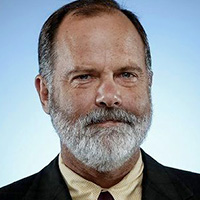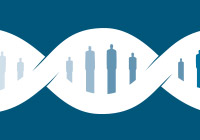PRESIDENT JOE BIDEN likes to talk about “building back better,” political shorthand for rebuilding after COVID-19 with an eye toward fixing not just the damage that the virus has wrought but addressing the problems that pre-existed it. Like much in politics, that is both simplistic and promising, as the crises documented in this issue of Blueprint suggest.
The economy was uneven before the pandemic, as any close look at em- ployment, wages and housing in Los Angeles makes clear. Then, as a study by the California Policy Lab reported, COVID-19 struck that vulnerability with staggering force. The result was as tragic as it was predictable: People of color lost their jobs at higher rates and died in disproportionate numbers than White residents of Los Angeles. Even those who were hit less severely suffered consequences in ways that preyed on pre-existing inequality: A worker or a student who was blessed with the opportunity to work from home but could not afford a sturdy Internet connection was destined to suffer yet again.
The insidious assault of the coronavirus on society’s existing weaknesses spared few walks of life: Families who struggled for income fell behind on rent; political divisions fanned by President Donald Trump and his allies deepened after an election that turned largely on public responses to his handling of the pandemic; White supremacy, a plague on American life long before COVID-19, flared in the aftermath of the election when marauders stormed the Capitol, howling racial epithets and carrying a Confederate battle flag through the building that an earlier generation of soldiers bearing that same flag sought to destroy.
What the studies and reports and analyses examined in this issue make clear is that “building back” is vital, but so is “better.” There is not much point in rebuilding a society that is divided and mean; the greater mission is to learn from the experiences of this past year and to correct everything that can be corrected. The work of researchers such as Alisa Belinkoff Katz on voting, Aaron Panofsky on race and Mark Peterson on politics offers hope.
Their investigations and those of others explored in this issue suggest ways forward. Some are matters of policy: how to better deliver unemployment benefits or renter assistance, to name two; how to protect and extend democracy, to name a third. Others combine elements of psychology and even spirituality: What does race mean, and how does society most successfully confront a White supremacist deluded about his own genetic makeup and dangerous to those around him?
Moreover, the pandemic also has served to remind society, however troubled, that it also is resilient. As this issue’s Special Report demonstrates, people and institutions responded to radical changes of life required by isolation in ways that also gave birth to creativity, in this case through the experiment of remote learning that UCLA has explored for more than a year.
Research sometimes spotlights a problem — and sometimes, but not always, points toward progress. Either way, it is at the core of understanding, and the work presented in this issue highlights at least two undeniable realizations: that society has suffered immensely, and that there are ways to make this society better.
























